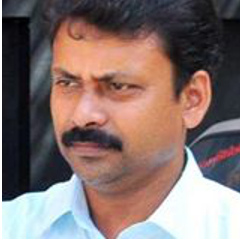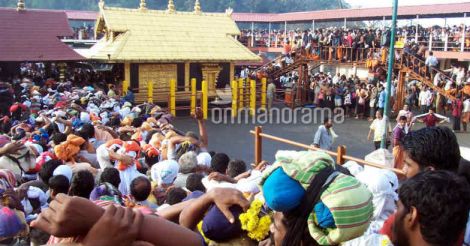Spirituality has always been a hotbed for political interventions, superstitions and other vices in India. The hue and cry for women’s entry to Sabarimala shrine, ensconced in Western Ghats of Kerala, stems from a political outrage over discrimination against the fairer sex rather than out of a sense of spirituality.
As per the tradition, women between the age of ten and fifty are restricted from visiting the hilltop shrine. However, the custom is shrouded in several myths.
Traditional proponents maintain that Ayyappa deity at Sabarimala is depicted in the Vanaprastha form and is a ‘Naishtik Brahmachari’ (devout celibate) and hence women in that particular age group are not allowed to visit the temple.
Many cite scientific reasons for the tradition. Some argue that the practice started years ago and people in those days considered trekking the assiduous terrains would affect women badly. Some even suggested that chance of attacks from wild beasts during the trek.
But those who call for safeguarding the customs and tradition mostly take refuge in the fear of divine wrath. This throws up the epochal topic of distinction between superstition and faith. So where should the line be drawn between politics and spirituality?
Faith is staunchly personal. So is one's spirituality or religious adherence. A place of worship might serve as an abode of the highest order where some sort of spiritual gratification is achieved. It’s hardly a place where politics can come into play or where a fight for justice could be relevant.
Let’s view this in the light of the fight against racial prejudices and casteism during freedom struggle in Kerala, which culminated in the temple entry proclamation by the last king of erstwhile Thirivithamakoor (Travancrore), Sri Chitra Thirunal Balarama Varma in 1936.
The proclamation was the result of relentless fight by reformers and activists against untouchability, casteism and oppression. Apprehensions about customs and divine wrath were put to rest during the wave of reformation.
Arguments against reformation got crushed under the juggernaut of revolutionary spirit against the imperial rule.
Liberty was a common cause for rulers and laymen alike and nationalism galvanized all the thoughts and concerns of the people.
But traditions and rituals in Sabarimala are centuries old, the times when industrial revolution was yet to dawn on civilizations and when pilgrims tread the path from their homes to the shrine on foot.
In the modern era, this is inextricably exposed to debates on rights and its violations. Those who advocate women's entry to Sabarimala are least concerned about women’s right to worship; it is more about politics now.
If at all a woman is a so ardent a devotee of Lord Ayyappa, she can always visit the temple at Kulathupuzha, where the deity appears as child and is known as ‘Manikantan’ and other prominent ayappa temples including Aryankavu temple in Kollam district or the Achankoil Sasta Temple in Pathanamthita district, where the deity appears along with two consorts – Poorna and Pushkala –.
Women are free to visit and worship these temples.
Now that a petition by the Young Lawyers’ Association is pending before the Supreme Court seeking to lift restrictions on women from entering the Sabarimala temple, it is likely that more similar litigation would reach the court of justice demanding changes at places of worship like freedom to enter the sanctum sanctorum where a priest performs the pooja, and so on.
But the debate - should women of all ages be allowed at Sabaraimala shrine- will continue. The question has been baffling the discerning Keralites, if not devotees, over the ages.
Arguments for and against have been equally vociferous. The rationale driven in favor is rooted to the democratic ideology of right to equality.
The point, as per the novus ordo seclorum, or the new order of the ages, is to ensure that all the citizens get equal opportunity for entry to a place of worship. But the political thought comes out of a misplaced sense of propriety by terming an age-old tradition as ‘rights denied’.
The current debate might serve a political purpose but what about the spiritual aspect. Who will raise the issue and before whom if all the devotees do not experience the bliss in equal measure.
Thus the demand for women’s entry to Sabarimala is pointless since it is not raised in the interest of any devotee.
(Views expressed are personal.)

























 Devotees at Sabarimala temple. File photo
Devotees at Sabarimala temple. File photo